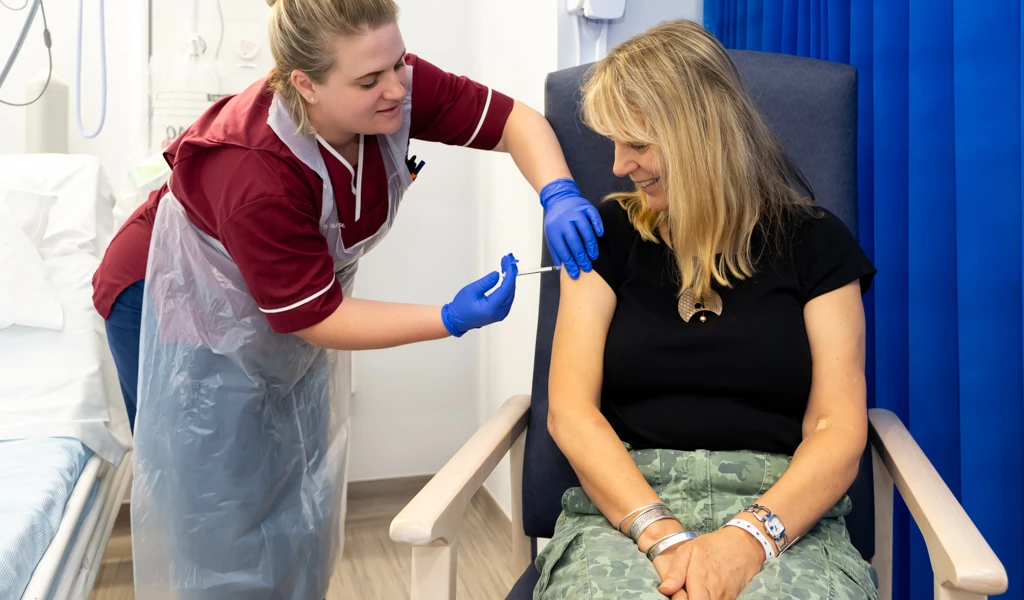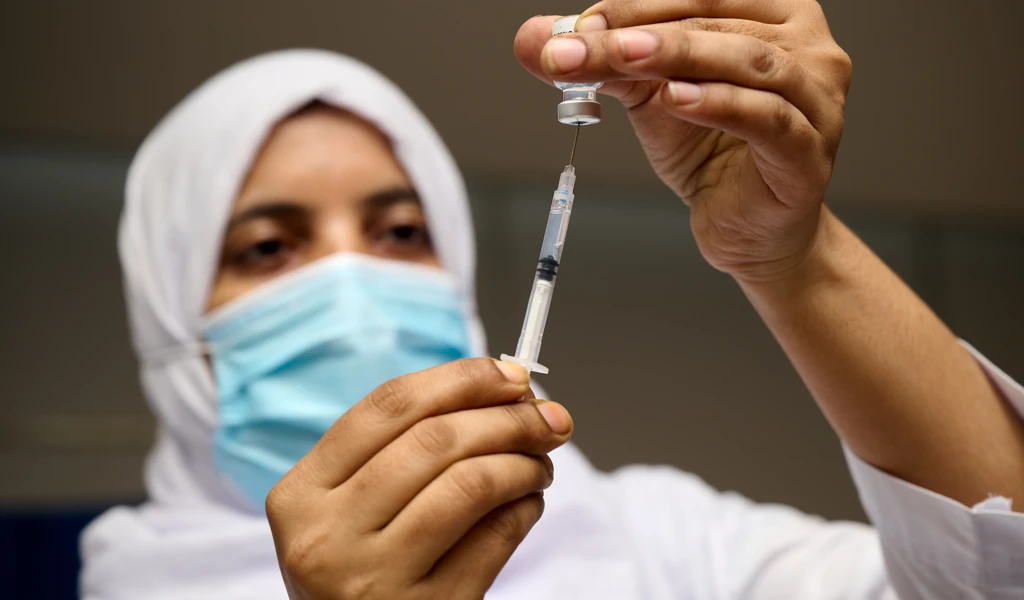CEPI partners with Rwandan-US Akagera Medicines to improve the delivery and accessibility of mRNA vaccines

CEPI to provide up to US $1.46 million to Akagera Medicines to advance innovative lipid nanoparticles and modified mRNA for the development of a multivalent influenza vaccine.
Technology could reduce reactogenicity of and improve access to mRNA vaccines, with potential applications to other future emerging infectious disease outbreaks.
Dec 19, 2023; OSLO, NORWAY; KIGALI, RWANDA, BOSTON, USA: At a press conference in Kigali, Rwanda, the Coalition for Epidemic Preparedness Innovations (CEPI) and the Rwandan-US Akagera Medicines today announced a partnership which aims to improve existing mRNA technology by reducing reactogenicity and improving equitable access to mRNA vaccine doses, for example by removing the need for frozen storage. CEPI will initially provide up to USD 1.46 million to demonstrate the pre-clinical proof of concept of Akagera Medicine's innovative lipid nanoparticles (LNPs) and modified mRNA for the development of a multivalent influenza vaccine. The outcomes of this partnership could better prepare the world for future epidemic and pandemic threats, including an as-of-yet unidentified pathogen known as Disease X, in alignment with the 100 Days Mission.
The 100 Days Mission is an ambitious goal spearheaded by CEPI, and embraced by leaders of the G7 and G20, that aims to accelerate vaccine development to around 100 days from virus identification, potentially stopping a future outbreak in its tracks.
Improving mRNA technology to end future outbreaks and pandemics faster
Advances in mRNA vaccine technology have been critical to the global response to COVID-19, saving millions of lives. Still, the reactogenicity of mRNA vaccines—that is, the side effects or reactions post-vaccination—is a challenge. Although such reactions are generally mild and short-lived and an indicator that the body is responding to a vaccine and building protection, these reactions may contribute to vaccine hesitancy.
Like many other mRNA vaccines, Akagera Medicine's technology uses LNPs to encase and protect fragile mRNA molecules, but their innovative LNP formulation could optimise delivery of mRNA and reduce potential LNP-associated adverse events. The technology could also improve the stability of the mRNA-based vaccines, removing the need for frozen storage. This is particularly crucial in addressing access to mRNA vaccines in remote or low-resource settings, which may lack the infrastructure and technologies needed to support ultra-low cold-chain.
Akagera Medicine's technology could offer additional potential benefits that would further bolster equitable vaccine access, including enhanced shelf life, reduced Cost of Goods, and a reduction in the required effective dose, which would extend the number of doses that could be produced.
Dr. Richard Hatchett, CEO of CEPI, said: "As we reflect on the critical role of mRNA vaccines in the battle against the COVID-19 pandemic, it's evident that improvements are needed to make the technology more accessible, particularly for people living in low-resource settings. Our partnership with Rwandan-owned Akagera Medicines aims to release mRNA vaccines from the limits of frozen storage and minimize their side-effects, thereby creating an even more impactful and accessible defence against emerging infectious disease threats. Rwanda is a regional leader in health innovation and has made great progress in effectively translating such innovation to address public health challenges. I look forward to strengthening our partnerships with Rwanda's burgeoning life-sciences sector."
Dr. Daryl Drummond, PhD, Chief Science Officer at Akagera Medicines, said, "We founded Akagera Medicines to create medicines that lead to a world free of tuberculosis (TB), humankind's greatest killer. This means improving efficacy, shortening the duration of treatment, optimizing drug/drug interaction, eliminating toxicity, and lowering the costs to patients and to society. We also intend to complete the development of our vaccine delivery system in 2025 that can be used for TB, Lassa fever, HIV, COVID, influenza and other infections. This delivery system, our patent-protected mRNA lipid nanoparticle, avoids intra-muscular reactions, passes through the lymph system, and targets and binds to the dendritic cells at the gateway of the immune system."
Michael Fairbanks, Executive Chairman at Akagera Medicines, said "We are honoured to partner with CEPI, one of the global organizations most critical to fighting pandemics. CEPI helps companies to learn and overcome challenges in return for sharing that learning with other firms and multilateral organizations who are also dedicated to global healthcare equity."
Regis Rugemanshuro, CEO of the Rwanda Social Security Board, the majority owners of Akagera Medicines, also added, "Akagera Medicines is the only African-owned company that has potential solutions to tuberculosis, Lassa fever and HIV. We welcome the partnership with CEPI, one of the world's best hopes to fight the next pandemic, because it will help Africa achieve our goals."
This funding forms part of CEPI's programme to advance novel RNA vaccine platform technologies for emerging and select endemic infectious diseases, which could offer substantial advantages over existing mRNA technologies, such as multivalency, improved immunogenicity, storage and stability, productivity, response time, and cost-of-goods.
Novel mRNA technologies, such as the one being developed by Akagera, could make a vital contribution to the proposed Global Vaccine Library. Central to the 100 Days Mission, a Global Vaccine Library is envisaged as a global repository of vaccine resources, capabilities, and data which could be pulled ‘off the shelf' and quickly adapted in response to a future outbreak, accelerating the development of life-saving vaccines.
Enabling equitable access to vaccines
CEPI and Akagera Medicines are committed to enabling equitable access to the outputs of this CEPI-supported programme, in line with CEPI's Equitable Access Policy. This ultimately includes commitment to vaccines being available first to populations at risk when and where they are needed at an affordable price should a related vaccine be developed further using CEPI funding. Project results including data generated as part of this project will be published open access for the benefit of the global scientific community.
—ENDS—
About CEPI
CEPI is an innovative partnership between public, private, philanthropic, and civil organisations, launched at Davos in 2017. Its mission is to accelerate the development of vaccines and other biologic countermeasures against epidemic and pandemic threats so they can be accessible to all people in need.
CEPI has supported the development of over 30 vaccine candidates against its priority pathogens—Chikungunya virus, Ebola Virus Disease, Lassa virus, Middle East Respiratory Syndrome coronavirus, Nipah virus, Rift Valley Fever virus and SARS-CoV-2—and is a leading funder of research into broadly protective coronavirus vaccines, which could protect against future variants of COVID-19 as well as other coronaviruses with epidemic and pandemic potential. The organization has also invested in the development of rapid response platforms to develop vaccines against Disease X (the threat of an unknown virus).
CEPI has overseen a number of scientific breakthroughs, including the first Phase 3 trial of a Chikungunya vaccine and the advancement of the first ever Nipah and Lassa vaccines into Phase 1 trials. The organization played a central role in the global response to COVID-19, supporting the development of one of the world's largest portfolios of vaccines against SARS-CoV-2, seven of which have been approved for domestic or global use. It also co-led COVAX, the global initiative to deliver fair and equitable access to COVID-19 vaccines, which has delivered approximately 2 billion doses of vaccine to 146 countries around the world.
CEPI's five-year plan for 2022-2026 aims to dramatically reduce or even eliminate the future risk of pandemics and epidemics. Central to the plan is CEPI's goal to compress the time taken to develop safe, effective, globally accessible vaccines against new threats to just 100 days. Achieving this ‘100 Days Mission', which has been embraced by the G7 and G20, would give the world a fighting chance of containing a future outbreak before it can spread to become a global pandemic.
Visit our news page for the latest updates. Follow us via @CEPIvaccines, @DrRHatchett, LinkedIn, and Facebook.
About Akagera Medicines
Akagera Medicines develops novel liposomal formulations of antibacterial therapeutics and vaccines to treat tuberculosis, Lassa Fever, HIV, influenza and other infectious diseases. The company was founded in 2018 in Kigali, Rwanda. It is majority-owned by the people of Rwanda through the Rwanda Social Security Board (RSSB), registered as a Delaware corporation, and has laboratories in Boston and San Francisco. Its partners include CEPI, the Gates Foundation, the National Institute of Health (VRC), the European Commission and the European Investment Bank. Akagera Medicines registered a subsidiary in Kigali in 2021 to do manufacturing and clinical trials in the future. Founding board members and advisors include Ambassador Dr. Albrecht Conze, Dr. Paul Farmer, Dr. Donald Kaberuka, and Dr. Anne Lenaerts.
Please visit our webpage at Akageramedicines.com.
Media contacts
CEPI
E: [email protected]
P: +44 7387 055214
Akagera Medicines
Michael Fairbanks, Executive Chairman and Cofounder
[email protected]


